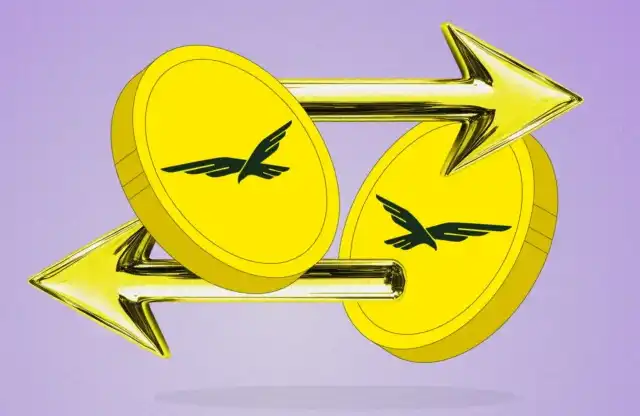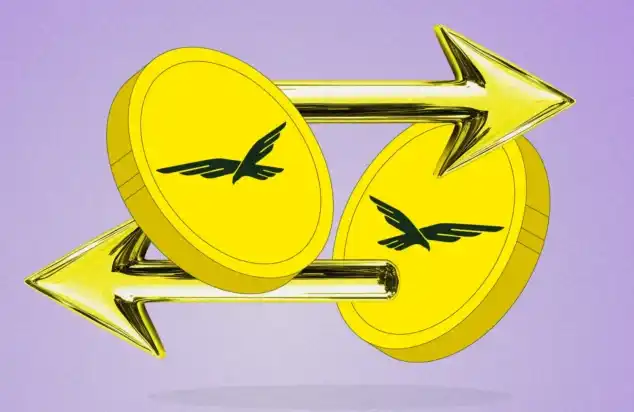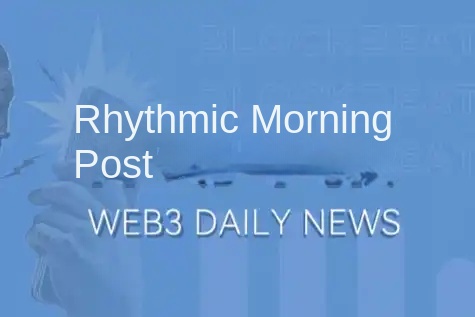From Copyright Wars to Data Co-Governance: How OORT is Breaking Through in the New AI Battlefield
The battle for data among AI giants is escalating.
Recently, the British Broadcasting Corporation (BBC) sent a legal letter to the AI search engine Perplexity, accusing the company of unauthorized web scraping and training on BBC content. BBC demanded that Perplexity stop crawling, delete the data already used for training, and proposed a financial compensation scheme; otherwise, they would seek a court injunction. This marks the surfacing of long-standing tension between the media and generative AI—data is not a public buffet, and AI models using content without authorization are being held accountable for copyright violations.
Almost simultaneously, Meta invested $14.8 billion to acquire a 49% stake in the AI data labeling unicorn Scale AI, bringing under its wing the 28-year-old founder Alexandr Wang and his team. Competitors like Google immediately hinted at finding alternative data suppliers to avoid suspicion—reportedly, Google under Alphabet has decided to sever ties with Scale AI—highlighting the industry consensus that "whoever controls the data holds the power of life and death."
On one side, content owners are fiercely guarding their rights, while on the other, giants are willing to spend heavily to acquire data. Data has become the most expensive and sensitive strategic resource in the AI race. However, when massive data is monopolized by a few centralized giants, the threshold for AI innovation rises, leading to various copyright disputes and compliance gray areas. In the squeeze between this data arms race and copyright defense, a new paradigm of decentralized, native-incentivized data collection targeting global ordinary users is on the verge of emergence—this is precisely the breakthrough that OORT aims to provide.
OORT's Data Node Network Reaches a Turning Point
As a proponent of decentralized AI data solutions, OORT has recently made a milestone advancement: its core application, DataHub, landed on the Binance decentralized wallet in late June, becoming the first DeAI (Decentralized Artificial Intelligence) data collection application integrated into Binance Wallet. This means OORT has reached a broader crypto community, opening up a brand-new channel for data monetization to millions of Binance users.

Through this integration, over 486 million potential users worldwide can directly participate in data tasks on the OORT platform via Binance Wallet, such as image categorization, content verification, data labeling, and receive instant rewards per task (in USDT or OORT tokens). This model provides a robust supplement for acquiring AI training data—unlike the traditional expensive and inefficient centralized collection method, the micro-labor of a large number of ordinary users is continuously converging into a high-quality data pool.

The incentive mechanism of the OORT DataHub has demonstrated strong attractiveness. To date, the platform has attracted over 300,000 registered users, with over 80,000 active users contributing data weekly. Over 50,000 OORT data nodes spanning 107 countries/regions worldwide form a vast network, including individual users as well as enterprise-level computing and storage providers.
Notably, OORT has partnered with industry giants such as Lenovo, Dell, Seagate, and Tencent Cloud to provide hardware support and cloud infrastructure endorsement for its decentralized data network. The rapid expansion of this node network and industry collaboration heralds a "singularity" moment for the decentralized data ecosystem: data is no longer exclusive to large corporations but is collectively owned and shared by myriad individual nodes.
The DeAI Loop Formed by the OORT Trio
As mentioned earlier, copyright lawsuits and privacy disputes have been constant in the AI industry, posing unprecedented legitimacy challenges. As a decentralized AI data infrastructure company, OORT offers a complete solution that covers data collection, storage, and computation. Its core product matrix is aptly referred to as the decentralized AI trio:

First is the OORT DataHub. This is a decentralized data collection and annotation platform for global users. Here, anyone can complete short data tasks via their smartphone or computer to contribute training data to AI models, including tasks like uploading images, recording voice, labeling text, and content moderation. DataHub features a sophisticated encrypted economic incentive mechanism: whenever a user completes a data task, the system instantly rewards them with USDT or OORT tokens. This "micro-task, instant reward" model not only provides researchers and developers with a steady stream of fresh, diverse, and high-quality data, reducing the risks of training set bias and staleness, but also allows ordinary users to tangibly share in the value appreciation of the AI industry. As advocated by OORT, individuals participating in data contribution become stakeholders in the AI ecosystem rather than exploited "data providers." Currently, the community datasets aggregated through DataHub have shown surprisingly positive results: datasets contributed by the OORT community have ranked at the top in multiple categories on Google's data competition platform Kaggle. This strongly validates the reliability of data quality in a decentralized model—data collected by individuals scattered worldwide, once properly incentivized and validated, can also meet industry-leading standards.
Next is OORT Storage. This is a decentralized data storage network closely integrated with DataHub. When a large and diverse set of raw data converges from DataHub users, how can it be securely, efficiently stored, and easily accessed later? The answer given by OORT is to build a distributed encrypted storage system, where data is sliced, encrypted, and stored on nodes globally. Compared to traditional centralized cloud storage, OORT Storage has advantages in safeguarding data privacy and reducing costs: data is more difficult to steal through dispersed storage, and the competition and collaboration between nodes also bring a better storage cost-effectiveness.
Thirdly, there is OORT Compute. This is a decentralized computing power layer built by OORT, which integrates edge node computing power for data validation and annotation. Simply put, OORT Compute aggregates idle computing resources from different nodes (including OORT's edge device Deimos, personal computers, and even enterprise servers) to form a decentralized supercomputer network. Each node will run a prefabricated algorithm I to validate and annotate data, transforming the large amount of raw data collected by DataHub into a high-quality dataset directly usable for AI model training. Through the integration with the OORT Olympus blockchain protocol, OORT Compute, along with the aforementioned OORT Storage, forms the decentralized infrastructure of OORTDatahub, realizing a full-process solution from data collection, cleansing, and annotation.
Why OORT Will Be the Keyhole to DeAI
Many blockchain projects have begun to attempt AI integration, but there is a serious issue of chain isolation: different chains cannot communicate smoothly, acting independently, causing DeAI to struggle to unleash its full potential. It is like computers before the birth of the Internet — powerful individually but greatly diminished in power due to the inability to connect.
Traditional centralized AI is constrained by data silos within enterprises, and if DeAI cannot solve the data isolation between chains, it may fall into the same trap. The significant differences in protocol, smart contracts, and virtual machine environments across different chains make interactions between cross-chain AI data and models exceptionally challenging.
The uniqueness of OORT lies in its not being limited to a single chain but rather providing cross-chain data collection, storage, and computation services directly through the Olympus protocol, solving the isolation problem between chains and bridging the essential links of DeAI. Simply put, OORT is like a keyhole, enabling smooth communication of data and computing power across different chains, allowing developers to focus on the core tasks of data and AI without being troubled by the complexity of cross-chains.
Compared to other projects, OORT's cross-chain solution not only effectively addresses age-old issues such as data privacy and copyright disputes faced by centralized AI, but also enhances the diversity and scale of data collection through a transparent blockchain incentive mechanism. This design also allows users to regain control of their data and participate in the value sharing of the AI industry.
Therefore, OORT can become the keyhole to DeAI, and the key lies in not only breaking down the data silo barriers but also providing a practical path to redefine data ownership and sharing rules, enabling the true implementation of decentralized AI ecosystem.
Empowering Users with the "Last Mile" of AI
Whether it is the copyright dispute between BBC and Perplexity or the data arms race around Scale AI among tech giants, fundamentally, they reflect the same issue: the development of AI is reaching the boundaries of traditional interests. Massive high-quality data is the fuel of AI models, but the way to access this data, its cost, and the distribution of benefits have long been inadequately addressed. In the past, the "last mile" of data annotation and collection has often been hidden behind the glamorous curtain of the AI industry, contributed by thousands of anonymous annotators and users, yet they struggle to receive due rewards and respect. OORT's proposed decentralized paradigm aims to truly return this "last mile" of AI back to users.
Through OORT, for the first time, we see such a direct connection established between ordinary people and the evolution of AI: everyone can use their spare time to make small but meaningful contributions to global AI models and receive immediate and fair rewards in the form of cryptocurrency. This model breaks through geographical and institutional limitations, consolidating individual power dispersed around the world into an engine that drives AI progress, transforming AI development from a monopoly of giants into a collaborative endeavor of mass participation.
Welcome to join the official BlockBeats community:
Telegram Subscription Group: https://t.me/theblockbeats
Telegram Discussion Group: https://t.me/BlockBeats_App
Official Twitter Account: https://twitter.com/BlockBeatsAsia
 Forum
Forum

 Finance
Finance
 Specials
Specials
 On-chain Eco
On-chain Eco
 Entry
Entry
 Podcasts
Podcasts
 Activities
Activities
 OPRR
OPRR







